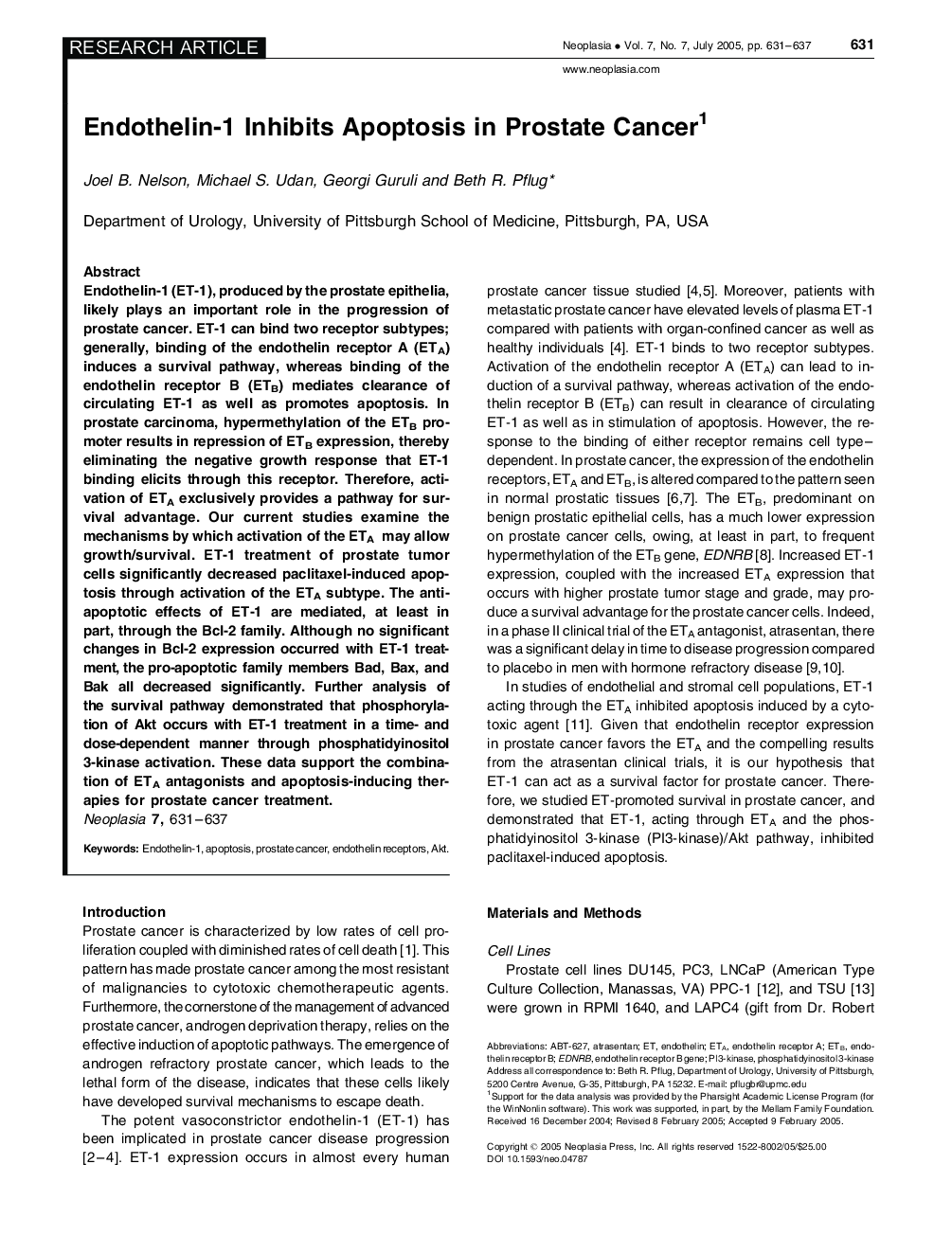| Article ID | Journal | Published Year | Pages | File Type |
|---|---|---|---|---|
| 10915437 | Neoplasia | 2005 | 7 Pages |
Abstract
Endothelin-1 (ET-1), produced by the prostate epithelia, likely plays an important role in the progression of prostate cancer. ET-1 can bind two receptor subtypes; generally, binding of the endothelin receptor A (ETA) induces a survival pathway, whereas binding of the endothelin receptor B (ETB) mediates clearance of circulating ET-1 as well as promotes apoptosis. In prostate carcinoma, hypermethylation of the ETB promoter results in repression of ETB expression, thereby eliminating the negative growth response that ET-1 binding elicits through this receptor. Therefore, activation of ETA exclusively provides a pathway for survival advantage. Our current studies examine the mechanisms by which activation of the ETA may allow growth/survival. ET-1 treatment of prostate tumor cells significantly decreased paclitaxel-induced apoptosis through activation of the ETA subtype. The antiapoptotic effects of ET-1 are mediated, at least in part, through the Bcl-2 family. Although no significant changes in Bcl-2 expression occurred with ET-1 treatment, the pro-apoptotic family members Bad, Bax, Bak all decreased significantly. Further analysis of the survival pathway demonstrated that phosphorylation of Akt occurs with ET-1 treatment in a time- and dose-dependent manner through phosphatidyinositol 3-kinase activation. These data support the combination of ETA antagonists and apoptosis-inducing therapies for prostate cancer treatment.
Keywords
Related Topics
Life Sciences
Biochemistry, Genetics and Molecular Biology
Cancer Research
Authors
Joel B. Nelson, Michael S. Udan, Georgi Guruli, Beth R. Pflug,
